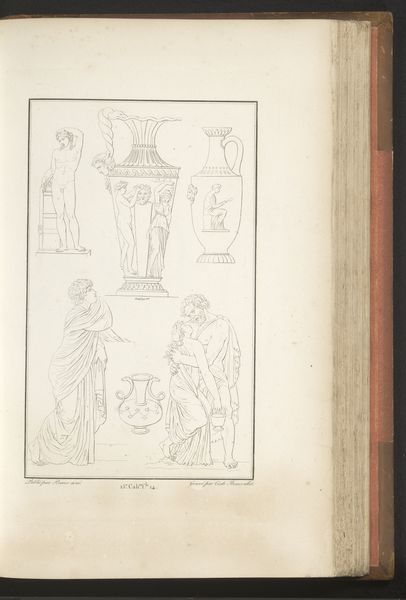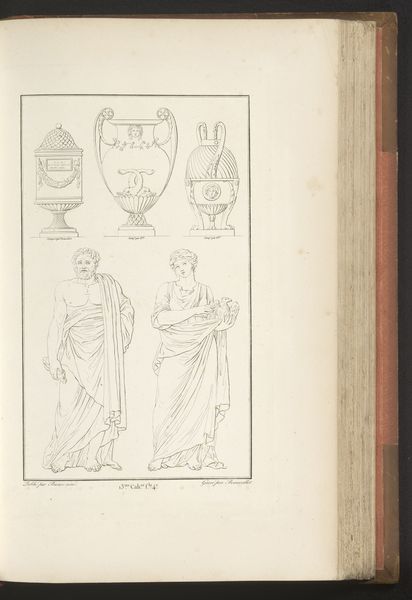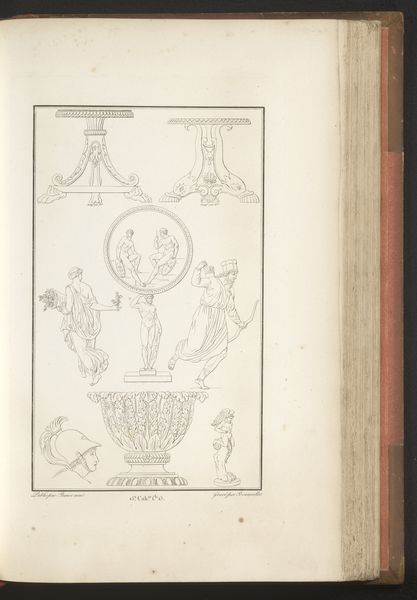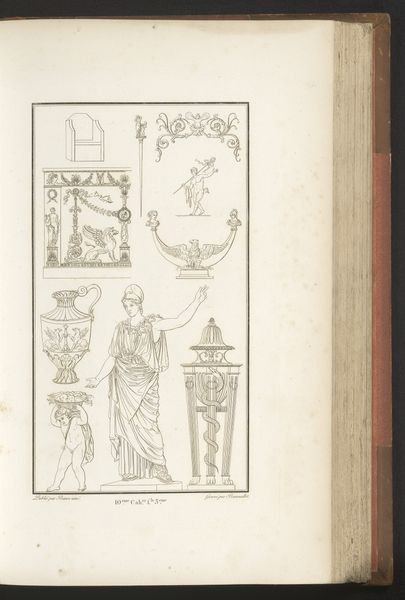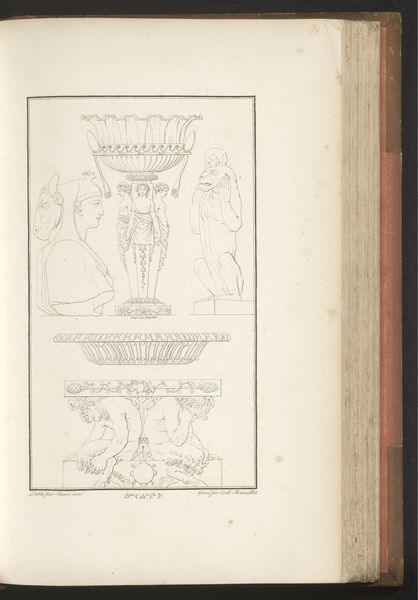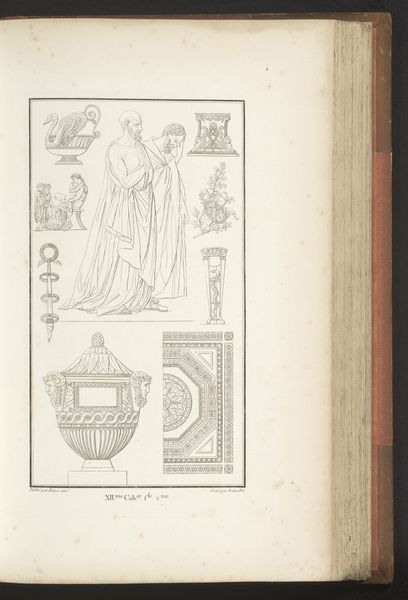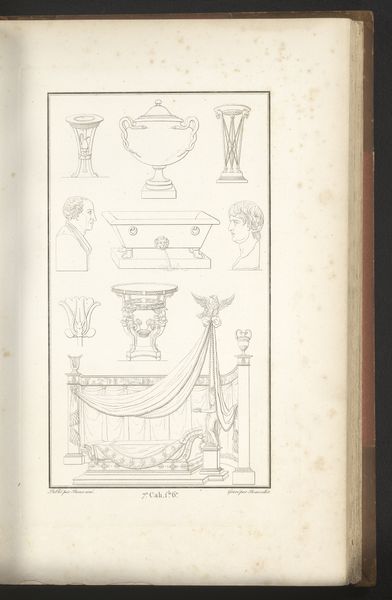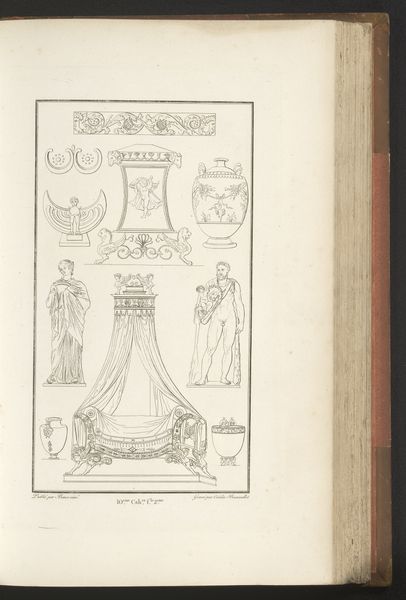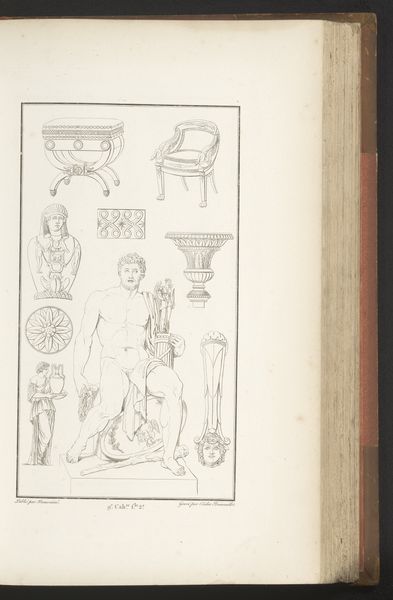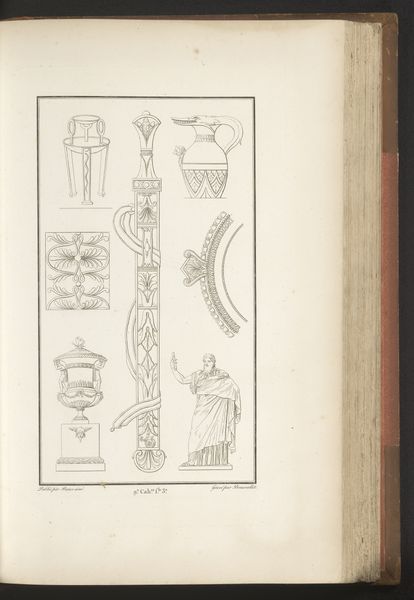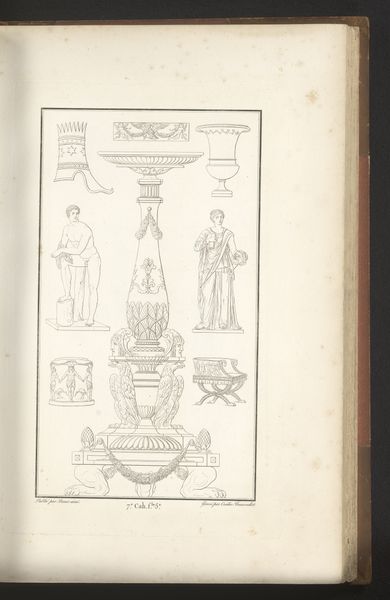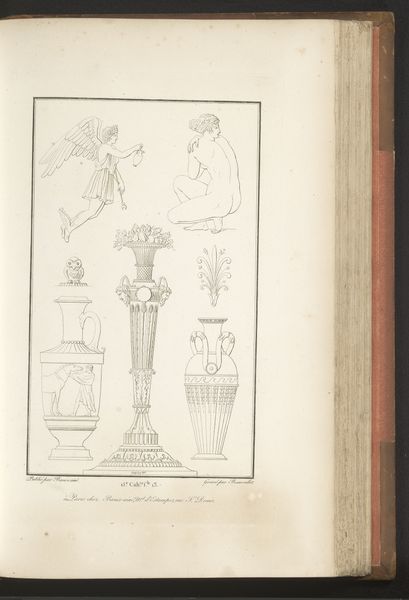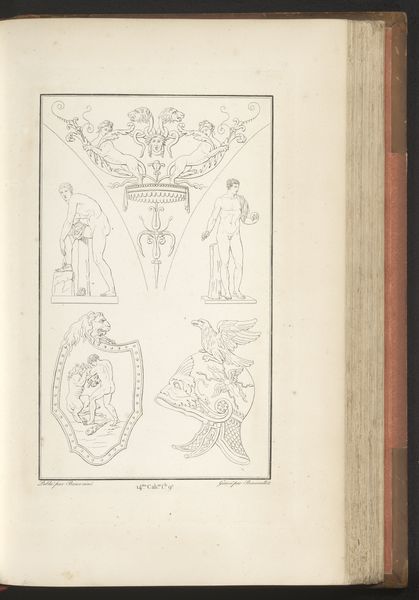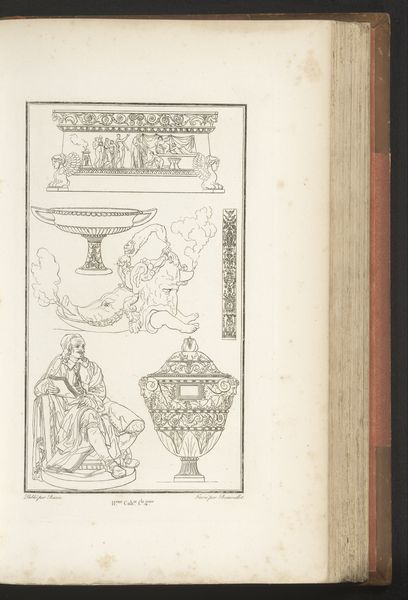
drawing, paper, ink, pencil
#
portrait
#
drawing
#
neoclacissism
#
paper
#
ink
#
pencil
#
academic-art
Dimensions: height mm, width mm
Copyright: Rijks Museum: Open Domain
Editor: So, here we have "Diverse ornamenten," a drawing from 1820 by Pierre-Nicolas Beauvallet, rendered in ink and pencil on paper. It feels like a classical study, almost a mood board. What do you see in this piece that might be missed at first glance? Curator: This drawing presents an idealized vision of classical antiquity. However, the arrangement itself speaks volumes. Beauvallet wasn't just copying; he was curating. We need to ask: who gets to define 'classical' and why? This curated view often leaves out the voices and perspectives of women, enslaved people, and other marginalized groups who were very much a part of that era. Editor: So, it's not just about the individual figures and objects, but also about the selective lens through which we view history? Curator: Precisely! Neo-classicism served particular social and political agendas. It frequently evoked ancient Greece and Rome to legitimize power structures and promote certain ideals – often reinforcing existing inequalities under a guise of timeless beauty. Consider the stoic expressions – who benefits from a populace that appears docile and accepting? Editor: I see, it is so easy to see it just as "pretty art," yet, unpacking those historical contexts of the moment seems so vital! Curator: It is through this contextualizing, this layering of historical and political interpretation, that we can begin to resist the uncritical adoption of classical ideals and understand their lasting effects. Even the act of sketching, in a way, could become a tool for democratizing creation of artwork. I am glad it sparked interest in you. Editor: Absolutely, thinking about it not just aesthetically but politically is certainly powerful and provides insight in historical context. Thanks so much!
Comments
No comments
Be the first to comment and join the conversation on the ultimate creative platform.
